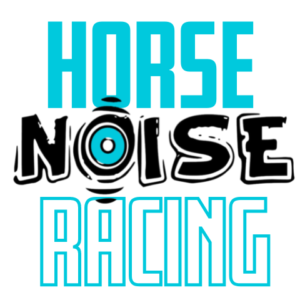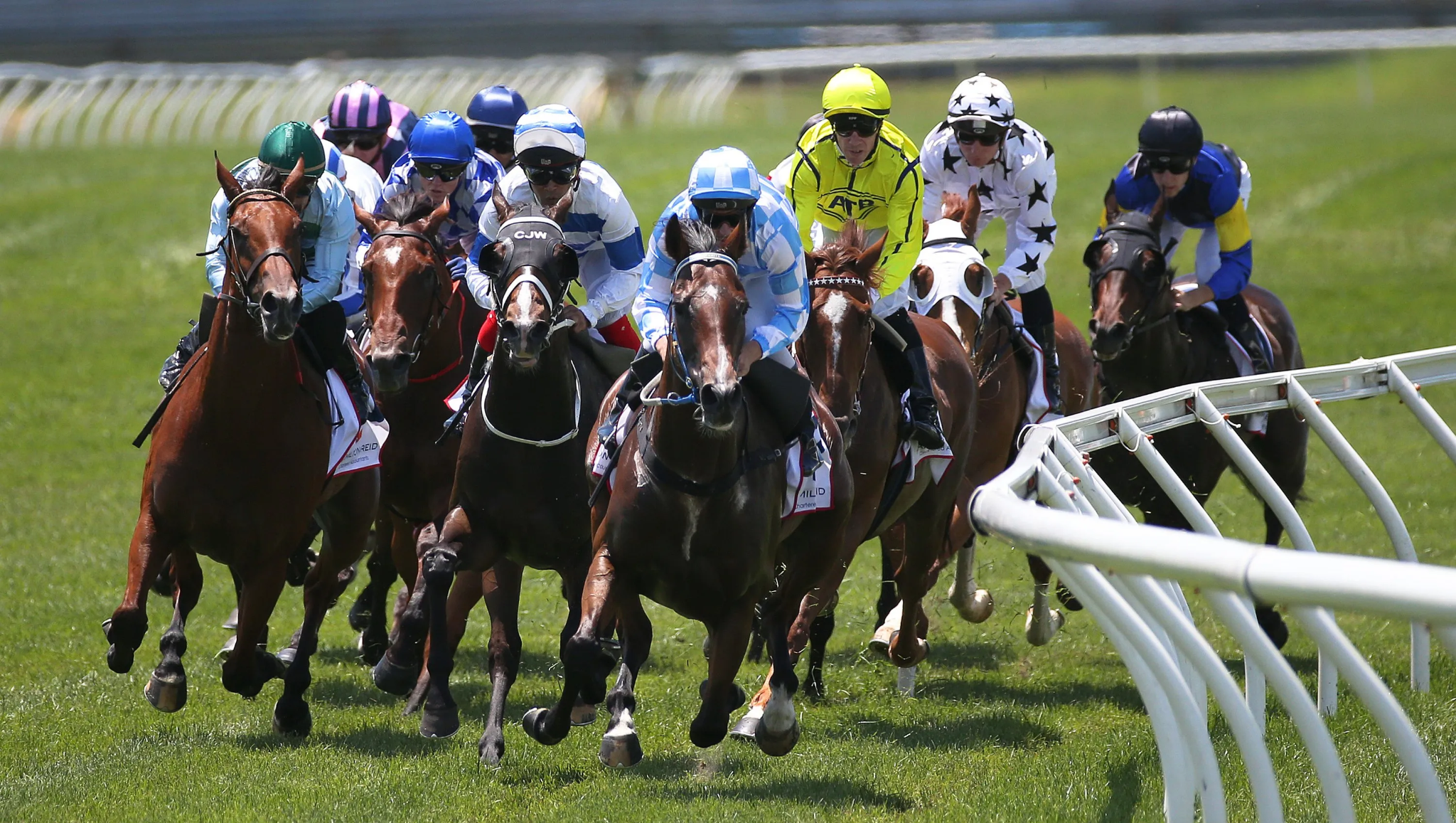If you want to earn money from horse racing, the first thing you need to know is that numbers and letters in horse racing form only have so much meaning. Punters who can analyse and handicap races, and identify reasons why the bookmakers may have overpriced a horse in a race usually benefit from betting on those selected races where the astute punter will find a false favourite.
What does Form mean in Horse Racing – The comprehensive form enables you to evaluate all of a horse’s performances in every race it has run across several race types throughout the course of its career. The most recent form is just as valuable as the historical form of the horse as they both can be utilised to analyse the overall form of a horse.
A summary of the most common Form Abbreviations and their explanations have been included below for the Avid Form Studier to have at hand when required. It is titled How to Read Form and references one of the Stars of the South African horseracing fraternity, Do It Again. It is published with the kind permission of the Lance Benson of the Sporting Post, the most popular Horse Racing Publication in South Africa. Number 13, 8, and 9 are the important Form components, whilst the remainder of the information supplements the form of the horse.
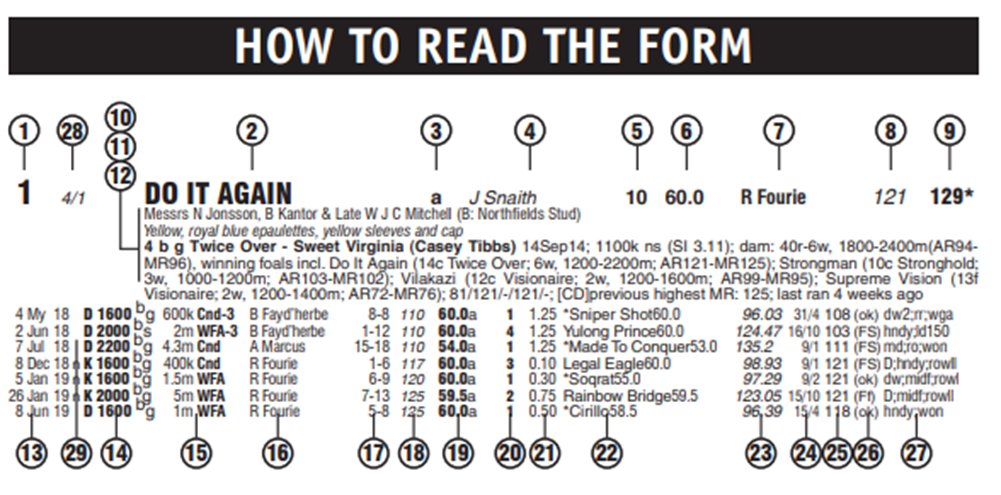
An Example of Form Study using non Horse Racing Terminoly
Consider a male athletics sprinter who has a series of 1s (first places) behind his name after winning the weekly race at his local athletics club. However, if he were to compete against Usain Bolt in the Olympic 100-meter final, you wouldn’t expect him to win, as the gulf in class between a runner at a local athletics club and the fastest man over 100m on Earth would be astronomical.
Now imagine that the athlete who finished last in the Olympics to Usain Bolt runs against that self-same sprinter who had been winning every week at his local athletics club. Would you expect the sprinter who finished last at the Finals of the Olympics to beat the local athlete with a string of first places?
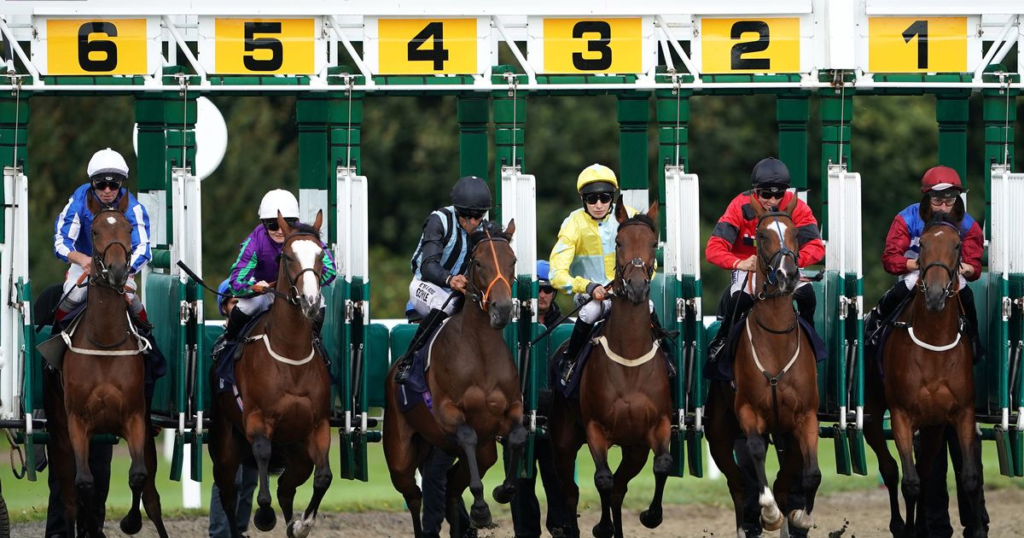
Yes, we would, because although the athlete in the Olympics Final ran last, the class difference between an Olympics Final and a local athletics club athlete would still be massive. What you need to realize about horse racing is that there are many different classes, and therefore an eighth-place finish in one race may be better than a victory in a much lower-class race.
Official Horse Racing Figures – Still only an Opinion
Horse ratings will offer you a better idea of class, but ratings are still merely the handicapper’s judgment based on what he has seen a horse accomplish. What these ratings don’t always take into account is if a horse has the potential to rank considerably higher (has room to improve at a rate quicker than what the handicapper thinks it will) or whether a horse hasn’t run up to form in a few races. A possible reason for these poor runs is that the handicapper might have overrated the horse in its previous races, and it will run poorly until the horse’s rating reduces to a lower rating more applicable to its actual ability.
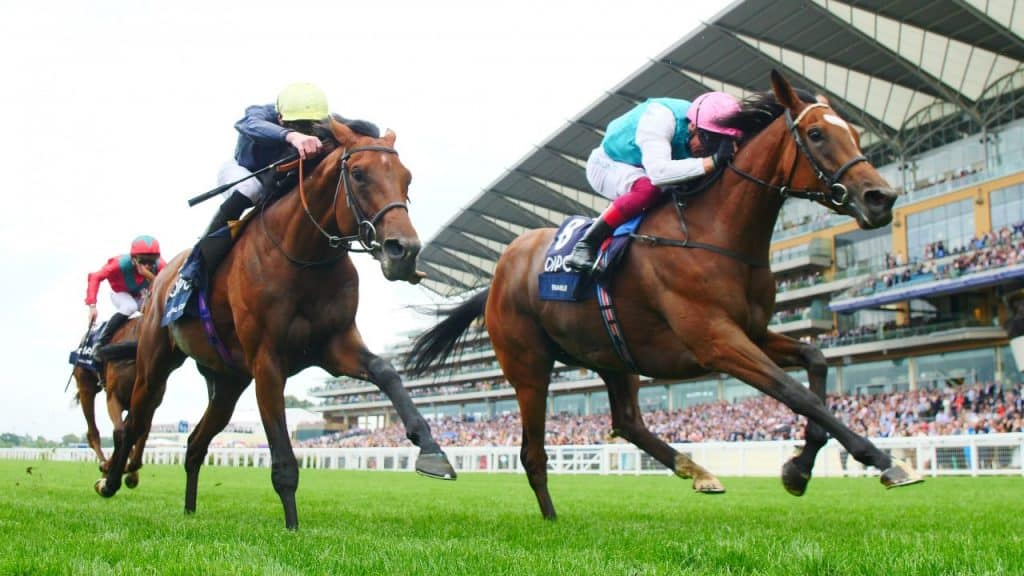
Horses are also rated based on their best recent performances, but that level of rating might only have been achieved at one racetrack, or the horse could prefer the Polytrack to a Turf track or vice versa. The racecourses in the United Kingdom and Ireland are highly distinct, and a horse may only run-up to its rating at one or a few of them.
Analysing Form – Other Factors
The Form on a race card does not always indicate the type of pace a horse prefers in a race. That only comes with watching horses over a period of time. Some horses like to lope along at the back of the field and then come with a sustained late run. These types of horses prefer races with a fast pace so that they can utilise their closing speed to run past tiring horses who were on the pace in front. However, these horses also need an element of luck, needing to find the gaps at the right time to make that sustained late run.
Other horses prefer a full-throttle gallop from start to finish to be seen at their best. They prefer to make their own pace, and will not want another horse that also wants to race from the front so that the horse’s jockey can set their own fractions or pace and conserve the horse for the ned of the race. Unfortunately, all the numbers on a race card will not tell you these preferences.
Analysing Form – Supplementary Factors
The number of days since a horse’s last race may be an important factor to consider, as some horses do better after a long layoff between races, while others perform better after a short layoff. Again, form figures will not reveal this at a glance, but examining the form book will allow the form analyst to reveal a horse’s preferences.
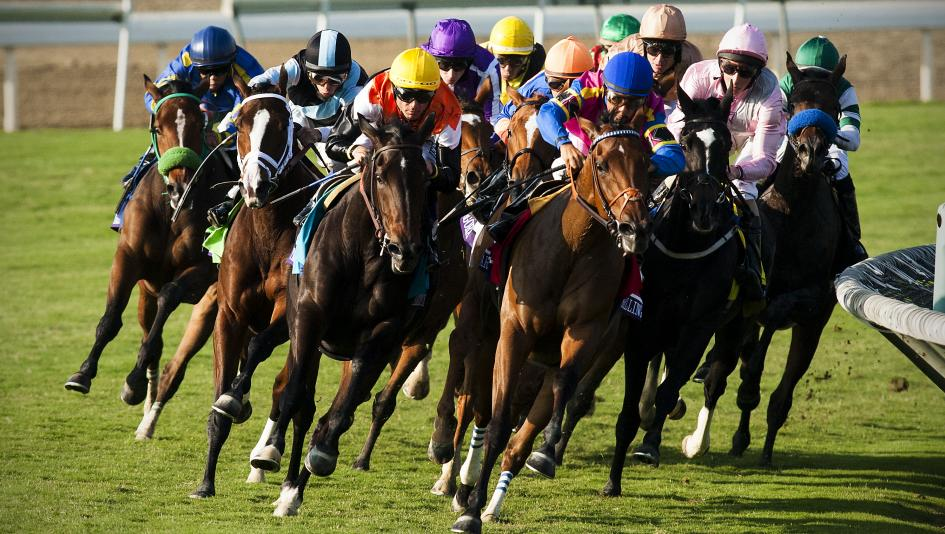
Many bettors are scared off by letters in horse racing form, and why would you want to bet on a horse that has lately fallen, pulled up, or been slow out of the starting stalls in its last two starts? However, re-watching races to determine whether horses with this sort of form have been unfortunate is always worth the time and effort as this will allow astute punters to find the value (horse at bigger odds than what they should be) horse in a race.
Although the wearing of first-time headgear may not signify much to many people, blinkers and tongue ties may be real causes for a horse’s better form. Some trainers thrive when it comes to adding headgear, so looking at these data might be a good way to find prospective winners. Wind surgery may also benefit many horses since they can gallop harder for longer periods if they can breathe better.
Form Study is not for all Bettors, and amateur Handicapping. However, the more effort you put into reading and analysing the form, the more value horses will be found. More value horses allow you to place more Each Way Bets on horses, and if some of them win, and a high proportion run places, that is how you grow your Bankroll.
